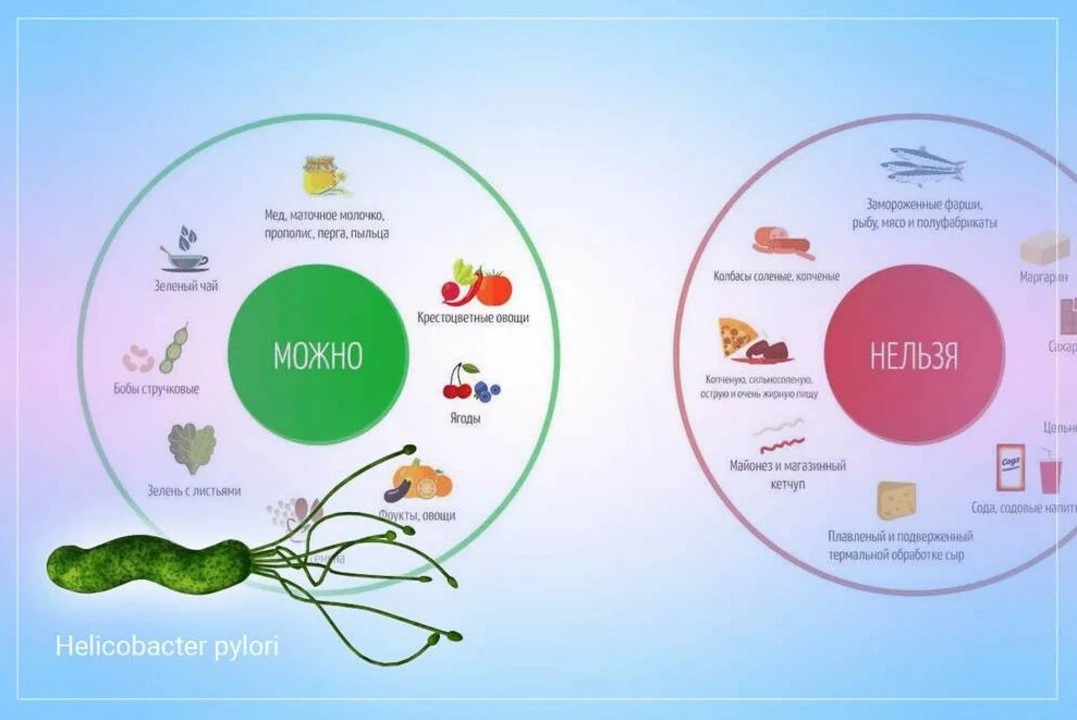H. pylori Infections: What They Are and How to Handle Them
If you’ve ever felt a gnawing ache in your belly or heard about stomach ulcers, H. pylori is probably part of the story. It’s a bacteria that lives in the lining of your stomach and can cause irritation, ulcer formation, and even long‑term problems if left unchecked.
How You Catch H. pylori
The bug spreads mainly through close contact with an infected person – think sharing utensils, drinking from the same glass, or touching food that’s been handled without proper hygiene. It can also hitch a ride on contaminated water or raw produce. Most people pick it up in childhood and never notice any trouble.
Typical Signs You Might Be Infected
Symptoms show up when the bacteria start damaging the stomach lining. Common clues are:
- A burning or gnawing pain that gets worse on an empty stomach.
- Nausea, occasional vomiting, or a feeling of fullness after tiny meals.
- Bloating and frequent burping.
- Unexplained weight loss or loss of appetite.
- Dark, tar‑like stools – a sign of bleeding ulcers.
If you notice several of these signs for more than a few weeks, it’s time to get checked out.
Getting the Diagnosis Right
Your doctor will likely start with a simple breath test. You drink a liquid containing a special ingredient; if H. pylori is present, it shows up in your exhaled breath within minutes. Blood tests and stool antigen tests work too, but they’re less accurate after you’ve started antibiotics.
For stubborn cases, an upper endoscopy may be recommended. A tiny camera looks at the stomach lining and can take a small tissue sample (biopsy) for lab analysis.
Treatment That Works
The standard cure is a combo of two antibiotics plus a proton‑pump inhibitor (PPI). The PPI reduces stomach acid, giving the antibiotics a better chance to kill the bacteria. Treatment usually lasts 10‑14 days.
Because antibiotic resistance is rising, doctors sometimes add a bismuth compound or switch to different drug pairs if the first round fails. Finish every pill – stopping early can let the bug survive and cause a repeat infection.
Things You Can Do at Home
While you’re on medication, avoid foods that irritate your stomach: spicy dishes, caffeine, alcohol, and very acidic fruits. Eating smaller meals more often helps keep acid levels steady.
Good hygiene cuts future infections. Wash hands thoroughly after using the bathroom and before meals. If you travel to places with questionable water quality, stick to bottled or boiled water.
When to See a Doctor
If you experience severe abdominal pain, vomiting blood, or notice black stools, get medical help right away – those could signal a bleeding ulcer. Even milder symptoms deserve attention if they linger for weeks because untreated H. pylori can increase the risk of stomach cancer.
Bottom line: H. pylori is common but treatable. Spotting the signs early, getting a proper test, and completing the full antibiotic course will usually clear the infection and let your stomach get back to normal.
As a blogger, I recently came across the topic of Metronidazole being an effective therapy for H. pylori infections. From my research, I discovered that Metronidazole is an antibiotic that is commonly used in combination with other medications to treat H. pylori infections. This bacteria is known to cause stomach ulcers and can lead to more severe conditions if left untreated. The treatment usually lasts for about two weeks, and it has been found to be successful in eliminating the infection in most cases. Overall, Metronidazole seems to be a promising treatment option for those suffering from H. pylori infections.
May, 9 2023

